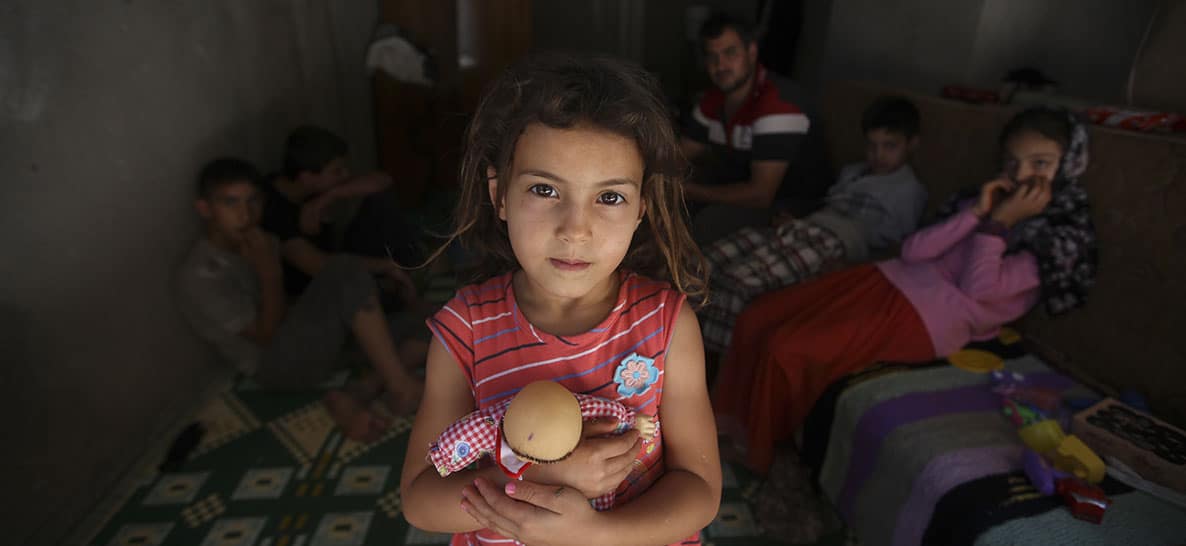
I’d always dreamt about traveling to Greece one day. But I never expected that my first trip there would bypass the ancient ruins and white sand beaches, taking me straight to the core of Athens, which has become an exploitative landing spot for Syrian refugees.
Once a powerful empire, the Athens I saw during my two trips there last year was a bleak and hurting version omitted from the year’s Lonely Planet guide. Traveling through the inner-city and several conversations with Greeks showcased how the city of Athens is struggling to meet the basic needs of its own citizens and proving to be an inauspicious host for the thousands of refugees from neighboring Middle Eastern countries.
So far this year, over 2,500 refugees have died somewhere in the Mediterranean Sea in their desperate voyages to places like Athens. Those who do survive the journey find they left one hell only to find another.
Without adequate government support, the mass influx of asylum seekers to Athens created a slum where its labyrinth of streets bring together a precarious mix of ethnic rivals, foreign illnesses and abject poverty. With few or no alternatives for refugees whose money and patience has run out, these unfavorable conditions breed another layer of destruction: survival prostitution.
And there is nobody more vulnerable than minors.
Youth are suffering the effects of a crisis that isn’t about them in the first place and are left to bear it however they can—which, more often than not, compromises their health, safety and dignity.
Imagine an unaccompanied 15-year-old boy fleeing from Damascus with just enough pride to fight starvation, but not too much to deny reality. As one of nearly 60,000 refugees stranded in Greece, he knows he needs to do what it takes to stay alive. Minors are in high demand in the sex trade and there is no shortage of men with fetishes in this city, so he has sex for survival for the first time and never looks back.
It’s more complicated than that, though. Young Syrian refugees like him who turn to prostitution for survival are faced with limited opportunities to sell their wares in a safe environment. Brothels tend to provide an extra layer of safety with on-site security and health screenings, but these are generally not open to Syrian refugees who have not yet obtained the right to work in Greece.
That leaves refugees to the most dangerous sex work available to them: street prostitution. And the streets of Athens are hardly the safe haven that refugees hoped they would be.
Violence is often unpredictably spurred by gangs, rival ethnic groups and political protests, prompting refugees on the streets to live in fear while avoiding the non-governmental agencies that would usually assist them.
The health risks are frightening, too—especially since HIV has risen by 200 percent in Greece in the last four years. Sometimes, drugs are the easiest way for these impressionable teenagers to cope.
The debt crisis further complicates the issue. Humanitarian aid has slowed and driven up the prevalence of prostitution. Falling wages during the recession forced youth stuck in the margins of this economic crisis to sell their bodies for as little as the cost of a sandwich.
How Can We Help?
I was in Athens recently with a team seeking to find hopeful solutions to sex trafficking. The sex trade has always been a burgeoning industry in Athens, but it was hard to ignore how the refugee crisis was creating a direct pipeline of victims for exploitation. We knew we couldn’t address one issue without addressing the other.
The challenge is that both of these inextricably connected issues are overwhelming enough on their own. Millions of Syrian refugees represent the worst humanitarian crisis of our time. And the 46 million victims of human trafficking in our world are enslaved by the fastest-growing criminal industry that generates an estimated $150 billion each year. The overlapping of the two creates an even deeper crisis.
While there is no easy answer or quick fix, I’m becoming more convinced that the increase of community response is an immediate source of healing for the brokenness presented in both of these humanitarian disasters.
Minors are selling their bodies because of a crisis that represents a breakdown in community between civilians and the government, between secular and religious fighters, between ethnic groups. The exploitation of refugee youth feeds off broken systems and is demanded by buyers who often have a history of childhood abuse and trauma.
Our communities are broken, too. Our youth are being abused, too. And we are a host for immigrants and refugees, too.
Since churches are called to love the foreigner among us, we are called to ensure our community welcomes those who are left out on the margins, refugee or otherwise. Preventing the exploitation of youth is also possible by volunteering at local child welfare agencies, supporting families who decide to become foster parents, sponsoring a child overseas or mentoring youth.
We can be overwhelmed by an issue and still respond to it locally. We can support the countless agencies aiding youth caught up in the Syrian refugee crisis, such as Oxfam, UNICEF and Save the Children. But our responsibility goes even further than writing a check.
We may not be able to serve overseas at the epicenter of the refugee and human trafficking crisis, but we all live in a community with the responsibility to protect the most vulnerable, welcome strangers and love the hurting.
For those of us on the other side of the world who feel far removed from the refugee crisis, we still have a part to play. What is yours?






















